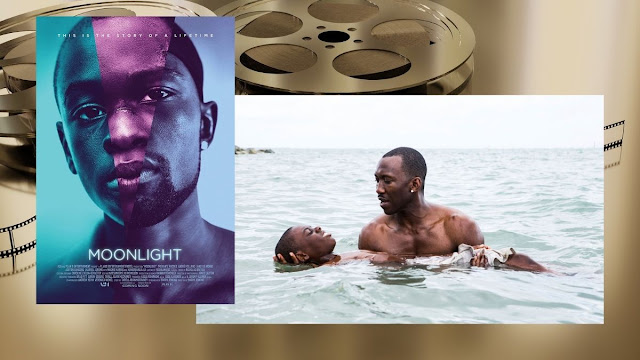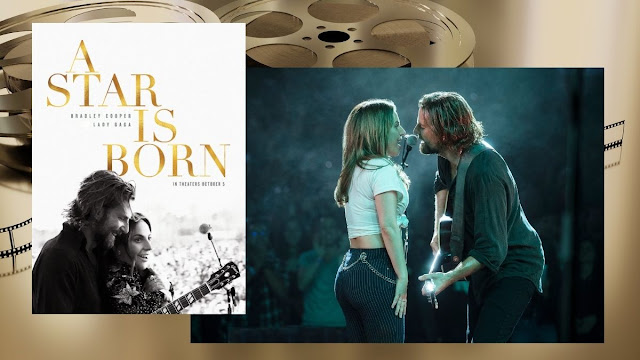Kristin Reviews Moonlight
After watching Moonlight, I can’t help but wonder if we watched the same film.
Moonlight is a serious (like, seriously serious) and ponderous film divided into three sections, each depicting events that occur in the life of the main character as he ages from a child (when he’s called “Little”) to a teenager (when he’s called by his given name, Chiron) to an adult (when he’s called “Black”). The movie is made up of sequences of scenes – incidents in Chiron’s life that are spliced together to create two hours of a sort of “day-in-the-life” observation.
From the very beginning, it’s clear that Chiron has an awful life. His mother (an Oscar-nominated performance for Naomie Harris) is a drug addict. He’s bullied mercilessly at school. And even the people who are actually nice to him are pretty awful people in their own right.
As a boy, Little is trapped in this hell, and it’s sad and ugly and heartbreaking. The interesting thing is that at this young age, he’s actually pretty wise. He knows what’s going on, and he seems to have a very clear understanding of right and wrong. This act was the most compelling of the three, partially due to Alex Hibbert’s haunting performance as Little (which was not nominated for any Oscars).
In this act, Little encounters and befriends Juan, an adult who serves as a father figure to the young boy. Juan is played by the charismatic Mahershala Ali, who is always a fascinating actor to watch.
Ali was nominated for a supporting actor award for his performance, but he didn’t really show off his skills in this role. He’s appeared in numerous television series in which he’s played far more intriguing characters and demonstrated impressive acting talent. I predict that he will probably land a meatier feature-film role in the future that truly gives him an opportunity to shine. Unfortunately, he will win an Oscar for this undeserving role because he’s diverse, which simply diminishes the value of the award.
Back to Moonlight, Chiron’s life as a teen doesn’t improve. As played by relative newcomer Ashton Sanders (who was also not nominated for any Oscars), teenaged Chiron is barely a shell of a human being. It seems that the thoughtful awareness he exhibited as a boy has been drained out of him, leaving him physically and emotionally withered. He’s surrounded by adults who don’t care and peers with no redeeming qualities.
The third segment, in which Chiron has transformed into Black feels like the longest segment, even though it probably isn’t. Having endured the brutality of Chiron’s life to this point, as an audience member, I just wanted the whole thing to be over. And it felt as if it took forever to get there.
Somewhere in the midst of all that, other critics saw a masterpiece.
I saw a film about a main character with no objective, no interest in having an objective, and no forward momentum aside from the natural process of aging. By the time we meet Chiron at the age of eight or nine, he’s already given up. There’s no drive to escape his circumstances – just a sad resignation. When Chiron finally does realize during the final act that there’s something he wants in life, it feels like too little, too late. At the point where I was supposed to root for him to finally reach for what he wanted, I had already checked out.
-Kristin
2.12.2017




Comments
Post a Comment